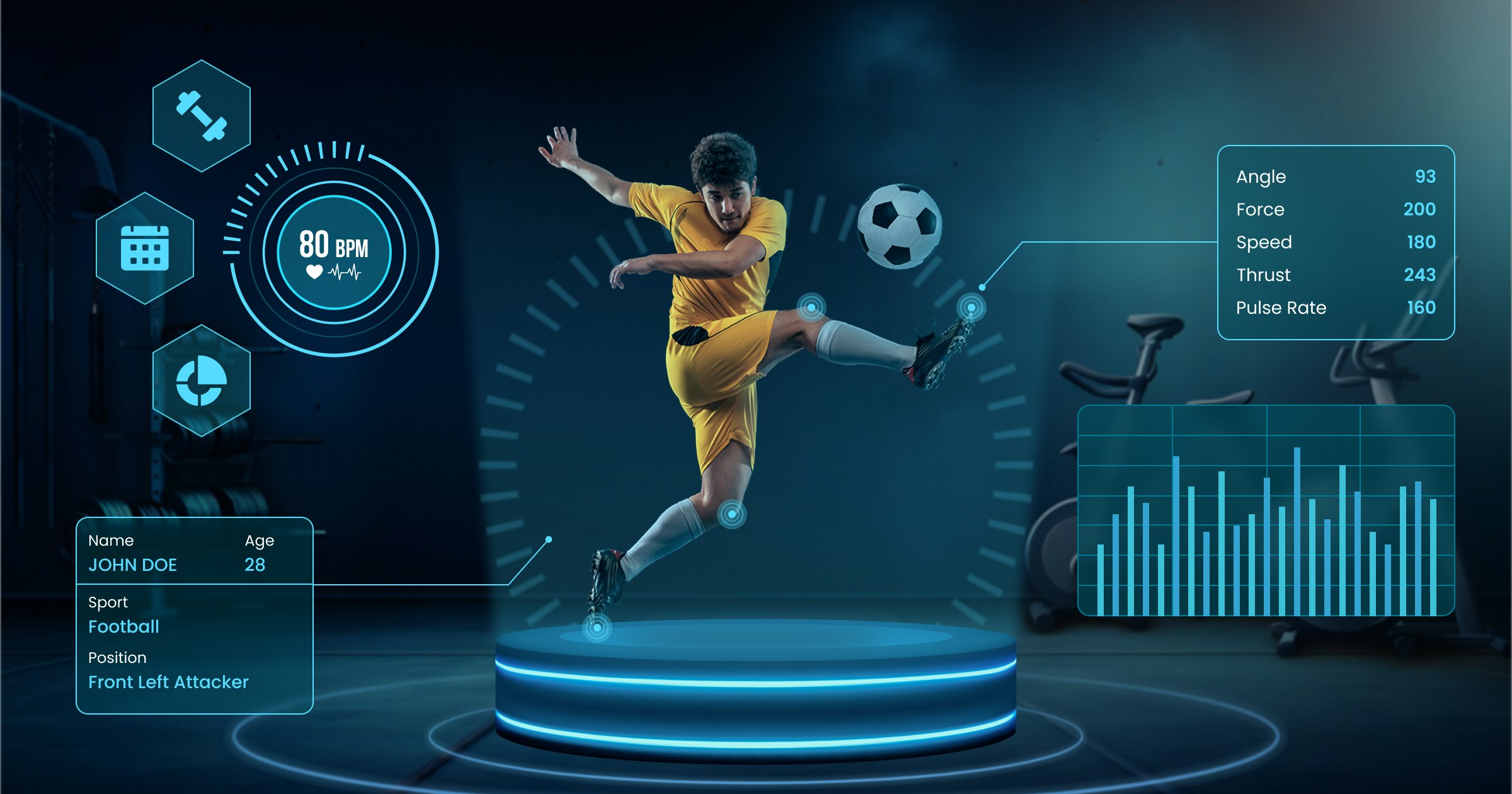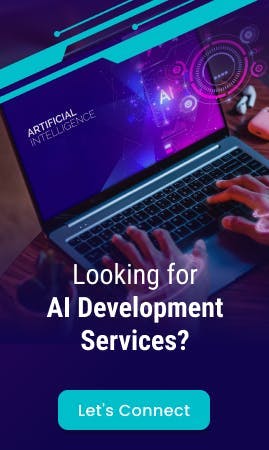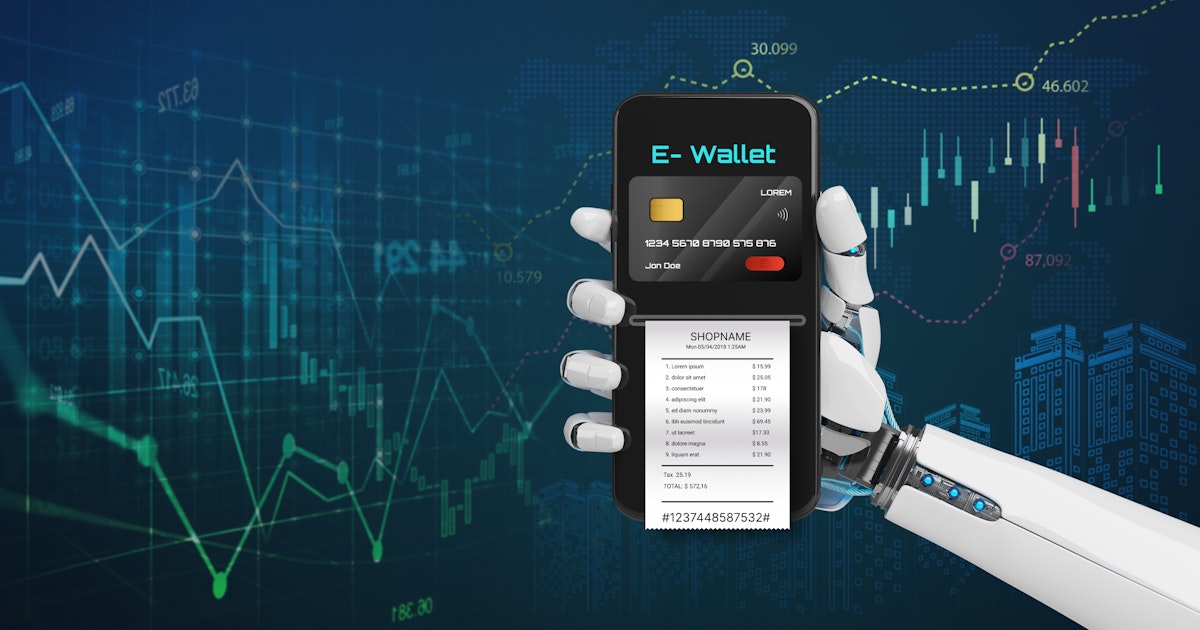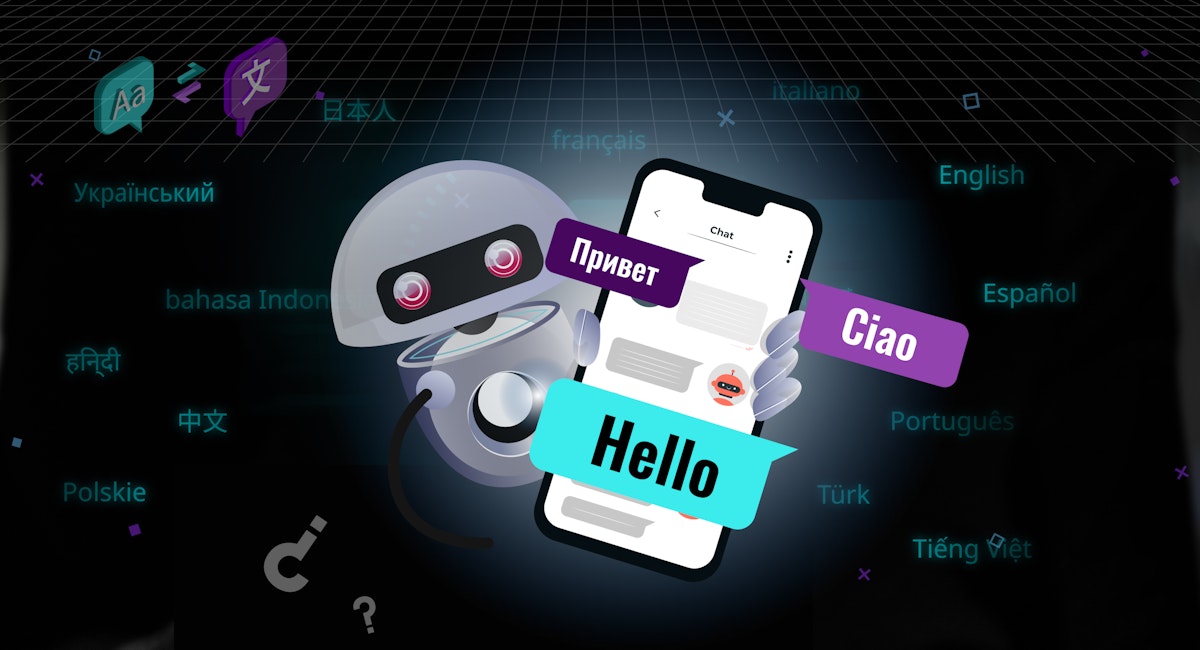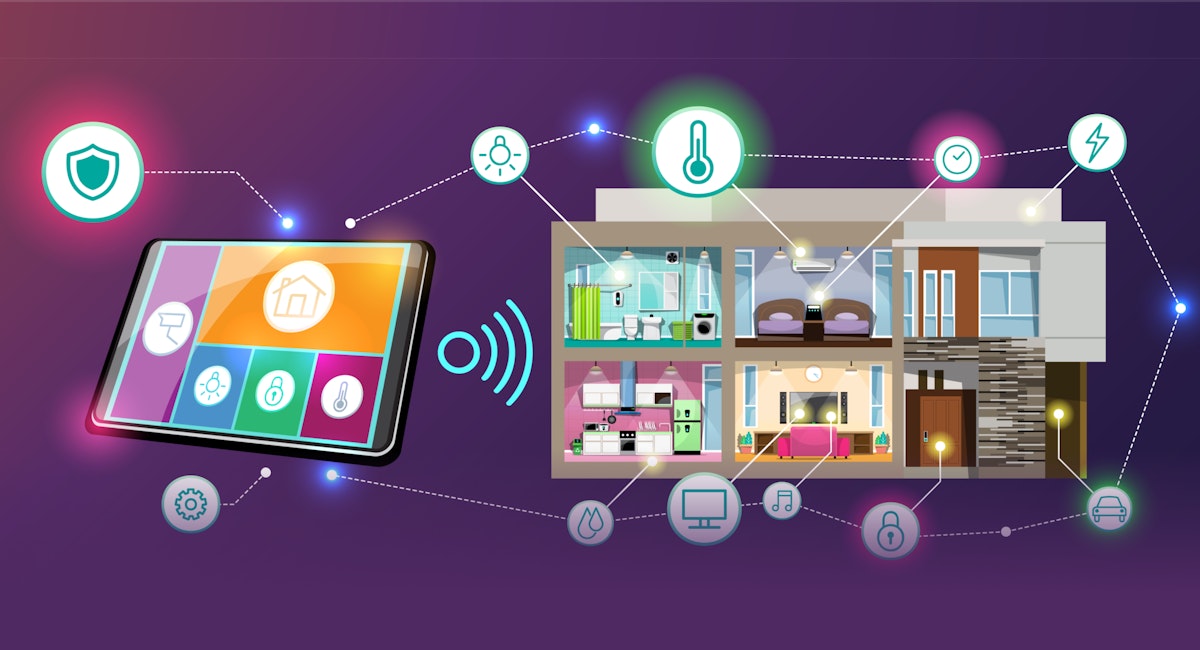Table of Content
In the past few years, AI has seen exponential growth. The sports industry is one of those top industries that have harnessed the power of AI. As per Allied Market Research, the AI market was $1.4 billion in 2020 and is accelerating at a CAGR of 30.3%, pushing the market size to a projected $19.2 billion by 2030.
These stats prove that among numerous industries, the sports industry reigns supreme in the rising AI market. Several uses of AI in athletics, such as post-game analysis, in-game activity, fan experience, and more, further support the numbers.
Today, Cricket, Football, the Olympics, and several other sporting events heavily rely on AI. How? Well, let’s proceed with this blog and unravel all AI's current and future applications in athletics and sports.
How is AI being used in sports analytics today
AI is transforming the sports industry through data-driven insights. It aids in injury prevention by monitoring athletes' movements and biomechanics. AI also enables tactical analysis, providing coaches with real-time insights for strategic decisions. Moreover, it enhances fan experiences with personalized content recommendations and real-time graphics during broadcasts. AI's capabilities in processing vast data are revolutionizing various aspects of sports.
Most of you have heard about the use of AI in apps for sports content personalization. That is just the tip of the iceberg. The use of AI has extended to several other verticals in athletics. Let's Explore more use cases:
5 Most Prominent Use Cases of AI in Sports
AI in sports use cases include performance analytics, injury prediction, and fan engagement. Teams use AI to analyze player stats, optimize training, and foresee injuries, enhancing performance and longevity. AI also personalizes fan experiences with chatbots, predictive insights, and interactive content, revolutionizing sports engagement.
1. Athlete Performance Analysis and Training
Predictive analytics models are accurate enough to deduce a player’s performance.
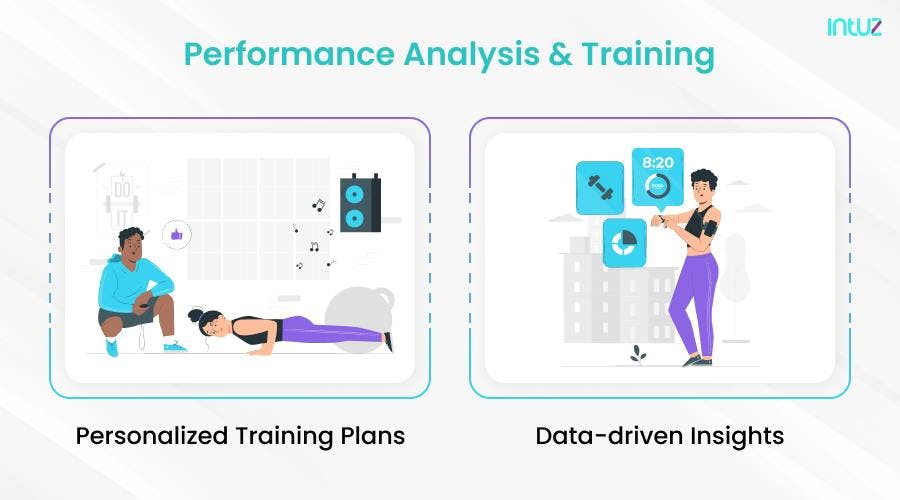
A. Data-driven Insights
With access to data gathered from smart bands, smartwatches, and other sensor-fitted wearables, parameters such as gait patterns, speed, endurance, strain levels, tear levels, player demographics, playing conditions, etc. can be fetched. Furthermore, based on that data, coaches can curate plans to increase the players' strengths and reduce their weaknesses. They can also easily strategize player rotations, breakout seasons, replacements, etc.
B. Personalized Training Plans
On top of this, analyzing a player's performance with AI and computer vision can also assist in curating ideal training plans. Team coaches can use AI and computer vision to analyze player movement, impact forces, opponents' playing style, etc., to know about the spatiotemporal trajectory of the players. It helps develop personalized training plans and optimize playing strategies for skill enhancement.
An example is the NFL, which uses AI and computer vision to improve player performance and refine training regimes.
2. Fantasy Sports and Gaming Experience
Since the introduction of technologies like AI, Blockchain, AR, Machine Learning, etc., fantasy gaming has gained massive popularity. Fantasy gaming is a virtual gaming experience linked with a real-life event.
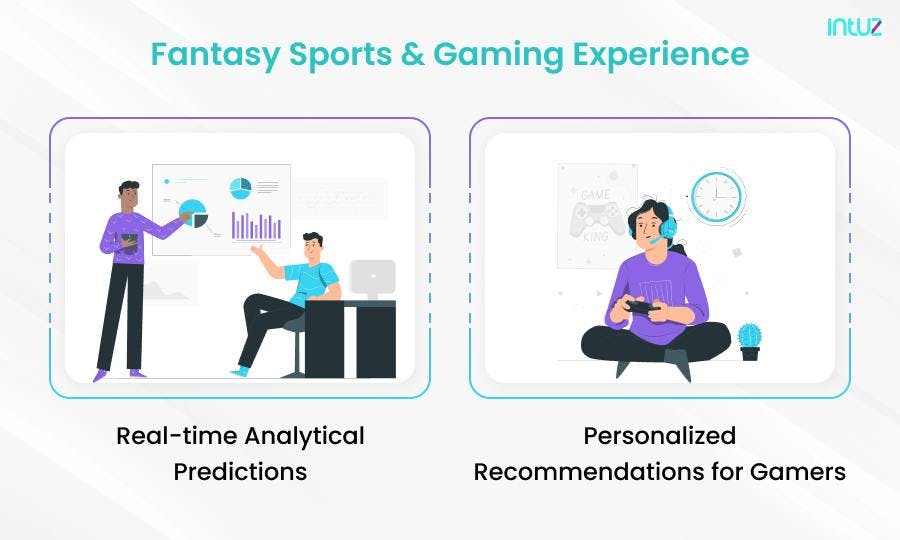
A. Real-time AI predictive analytics in fantasy sports and gaming
AI is used in fantasy gaming to analyze aspects like real-time player performance, habits, morale, past injuries, weather conditions, game venues, and other preferences with the help of advanced analytics and powerful predictive modeling. Some of the most common predictive models used in fantasy gaming apps are classification models, regression models, and clustering.
B. Personalized Recommendations for Gamers
As per the complex analysis of AI, the AI-powered fantasy game app provides you with recommendations for team building so that you can customize your choices. Several fantasy apps amplify the gaming experience, such as ESPN Fantasy Sports, Dream 11, and more.
3. Game Strategy and Decision-Making with AI
Just like effectively analyzing players' performance, AI can significantly help devise top-notch game strategies and enable informed decision-making.
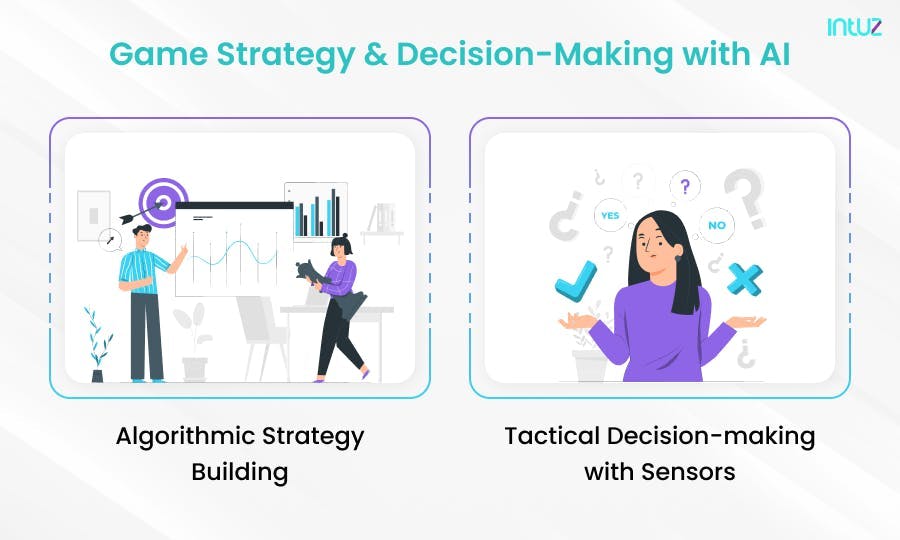
A. Algorithmic Strategy Building
AI can help team coaches analyze opponent teams based on playing styles, formations, player positioning, and individual player tendencies. With the help of complex AI algorithms like logistic regression, artificial neural networks, hierarchical clustering, K-means clustering, and real-time player statistics, coaches can easily plan out starting line-ups, substitutions, and tactical adjustments.
B. Tactical Decision-making with Sensors
Lastly, there are several sensors (GPS, accelerometers, etc.), wearables, and cameras on the ground. Coaches can assess regular and visual data from these devices to formulate game plan decisions, including player substitutions and playing time.
The NBA is a perfect example of this. Coaches of the NBA teams use AI to analyze players' performance to make line-up decisions and devise gaming-winning strategies.
4. Injury Prevention and Health Monitoring
Injury prevention is one of the primary advantages of using AI in sports. Several parameters like workload, fatigue, and biomechanics can be monitored to predict any chances of injury. Based on that, counteracting injury prevention measures can be taken. These can include personalized training plans and recovery protocols, such as stretching, compression garments, and massages.
Other than that, wearable devices like smartwatches and wearable fabrics can be used to capture information like sleep patterns, heart rate, etc., to detect concussions and other potential injuries. Thereby planning timely player rotations and game strategies.
An example of this is the NFL team, Seattle Seahawks. The team coaches use Microsoft Azure and Power BI to predict and prevent injury. The software uses powerful machine learning and predictive analytics technology to capture and analyze heaps of data, including player movement data and wellness report surveys.
5. Fan Engagement and Viewer Experience
Artificial intelligence has significantly improved the way viewers can experience sports. With the use of AR, VR, etc., artificial intelligence has taken fan engagement and viewer experience to the next level.
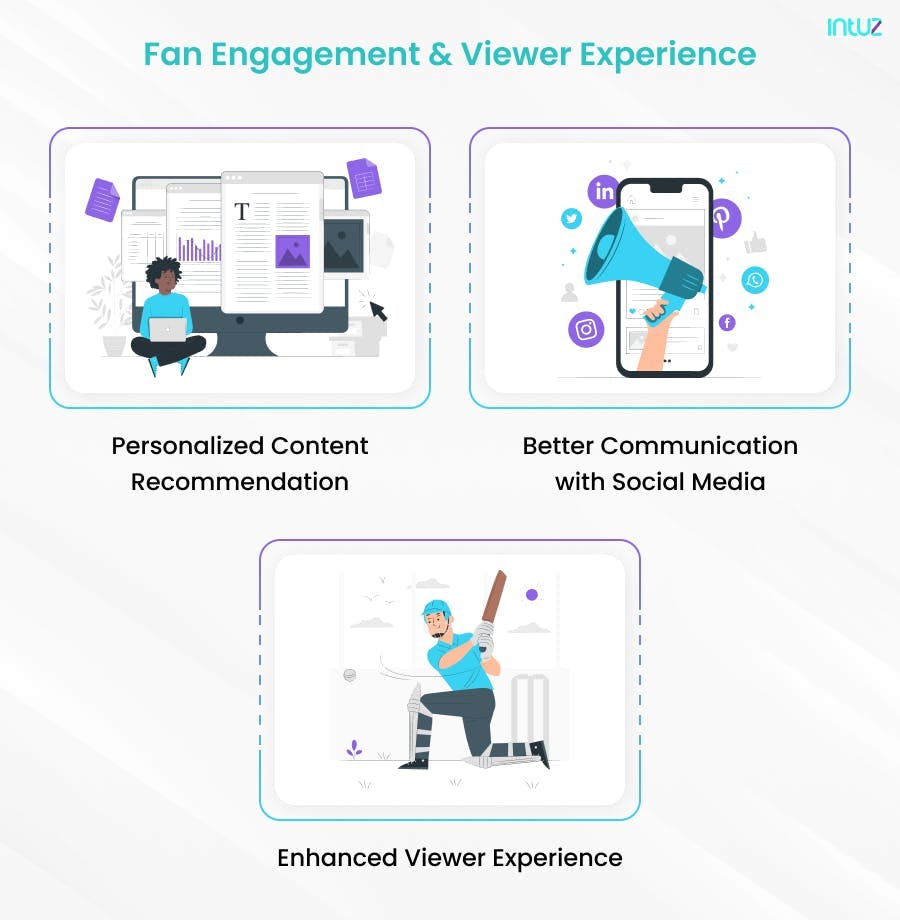
A. Personalized Content Recommendation
An example of this is including game highlights, game articles, and videos. On top of that, augmented reality can be used to display player stats and other crucial game elements on the mobile screen of the viewers. A perfect example of this is the Stadium Experience of the FIFA+ app. The app allows viewers to see augmented overlays of players' stats, heat maps, and replays like television.
B. Better Communication with Social Media
Lastly, sports teams heavily use social media to communicate and stay linked with their fans. AI-based chatbots are used to communicate with the fans and let them know about the post-match results, highlights, and other important event information.
C. Enhanced Viewer Experience
When it comes to viewer experience, AI has a pivotal role. Today, there are several aspects in which AI has improved sports broadcasting. For example, using AI with embedded cameras, drones, and devices at various positions on a field helps display fielding positions and live field views to viewers in their homes.
Live commentary can be turned into closed captions with the help of AI. Further, specific match video moments are highlighted, including audience responses and players' facial expressions.
An example of such an experience was provided in the 13th season of IPL. A solution named Spatio, developed by Quidich Innovation Labs, was implemented. The solution amplified the experience for the viewers by integrating AR elements into the video input from the wireless camera system. An animated coin toss, 3D player stories, milestones, and graphic fireworks were a part of it.
Future of AI in Sports
In the future, AI can make several other critical decisions in sports. Here are some of the futuristic trends and ideas related to AI in sports.
1. Fairness and Bias Mitigation
Wrong decisions and recommendations have a decent probability of happening, which can lead to discriminatory decisions against the players. For example, certain algorithmic designs and AI training data can be biased, leading to unfair recommendations, decisions, and discriminatory effects. The future AI will be able to judge these biases and offer complete fairness in the results, ensuring equal opportunities irrespective of race, gender, socioeconomic status, etc.
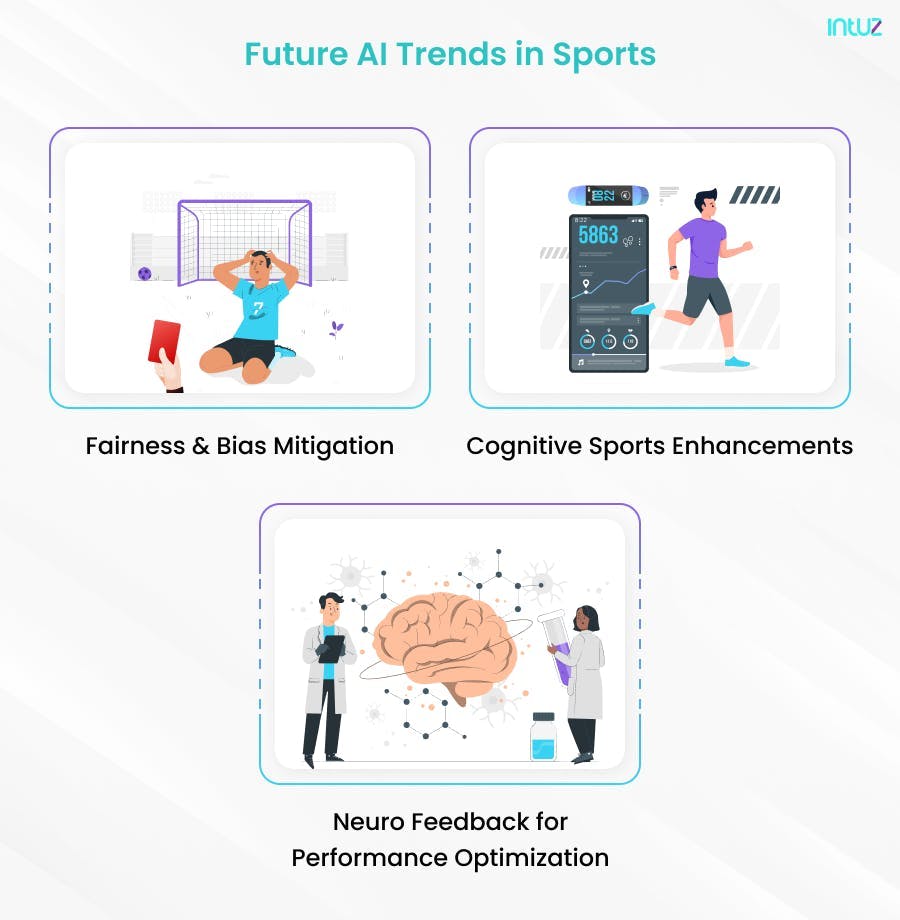
2. Cognitive Sports Enhancements
Cognitive Enhancement deals with improving the mental ability of the athletes. With AI supporting the coaches in making decisions regarding line-ups and game strategies, it will provide instant action recommendations to the players in the future. Based on the historical and current data, AI will empower athletes to make split-second decisions while playing games like tennis, soccer, etc.
3. Neurofeedback for Performance Optimization
Though purely technical, Neurofeedback for Performance Optimization includes systems that analyze the athlete's brain activity. Based on the provided feedback, it enables the athletes to optimize their mental state for better performance. The outputs can also be used to create mental recovery programs for the athletes. We are surefire to see such AI-backed programs in the future.
AI-Powered Fantasy Sports: Making Informed Picks with Data Analytics
Read nowConclusion
AI is a game-changer for the sports industry for one and many reasons. AI can enhance the sports experience for the fans, not just for the players and coaches.
Do you need an AI-powered sports app or AI integration for your sports team, academy, fans, or training center?
Book Your Free 45-Minute Consultation with Our AI Experts Today!
During this personalized consultation, our team will:
Conduct an in-depth analysis of your current sport data sources and processes
Identify high-impact AI use cases tailored to your specific needs (player evaluation, training optimization, injury prevention, etc.)
Provide recommendations on best sport fit AI tools or platforms based on your needs
Offer a personalized roadmap step by step for integrating AI into your existing sports technology infrastructure
